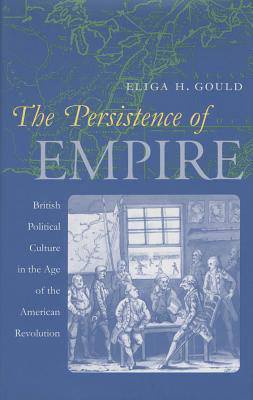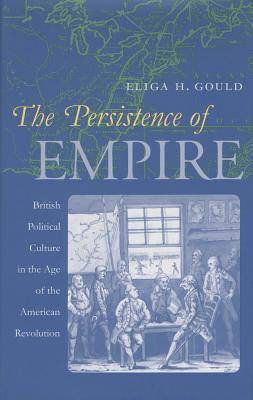
- Afhalen na 1 uur in een winkel met voorraad
- Gratis thuislevering in België vanaf € 30
- Ruim aanbod met 7 miljoen producten
- Afhalen na 1 uur in een winkel met voorraad
- Gratis thuislevering in België vanaf € 30
- Ruim aanbod met 7 miljoen producten
The Persistence of Empire
British Political Culture in the Age of the American Revolution
Eliga H GouldOmschrijving
The American Revolution was the longest colonial war in modern British history and Britain's most humiliating defeat as an imperial power. In this lively, concise book, Eliga Gould examines an important yet surprisingly understudied aspect of the conflict: the British public's predominantly loyal response to its government's actions in North America.
Gould attributes British support for George III's American policies to a combination of factors, including growing isolationism in regard to the European continent and a burgeoning sense of the colonies as integral parts of a greater British nation. Most important, he argues, the British public accepted such ill-conceived projects as the Stamp Act because theirs was a sedentary, "armchair" patriotism based on paying others to fight their battles for them. This system of military finance made Parliament's attempt to tax the American colonists look unexceptional to most Britons and left the metropolitan public free to embrace imperial projects of all sorts -- including those that ultimately drove the colonists to rebel.
Drawing on nearly one thousand political pamphlets as well as on broadsides, private memoirs, and popular cartoons, Gould offers revealing insights into eighteenth-century British political culture and a refreshing account of what the Revolution meant to people on both sides of the Atlantic.
Specificaties
Betrokkenen
- Auteur(s):
- Uitgeverij:
Inhoud
- Aantal bladzijden:
- 288
- Taal:
- Engels
- Reeks:
Eigenschappen
- Productcode (EAN):
- 9780807848463
- Verschijningsdatum:
- 6/03/2000
- Uitvoering:
- Paperback
- Formaat:
- Trade paperback (VS)
- Afmetingen:
- 152 mm x 229 mm
- Gewicht:
- 426 g

Alleen bij Standaard Boekhandel
Beoordelingen
We publiceren alleen reviews die voldoen aan de voorwaarden voor reviews. Bekijk onze voorwaarden voor reviews.







